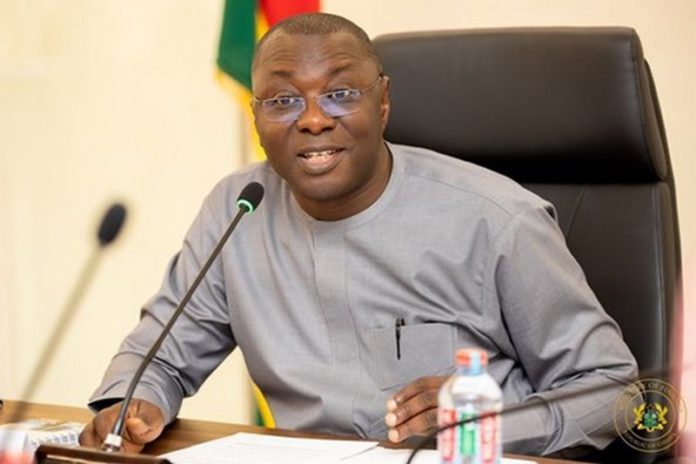Former Finance Minister Dr Mohamed Amin Adam has raised concerns over the structure of the proposed GoldBod initiative, cautioning that its design could create conflicts of interest.
Speaking in Parliament during deliberations on the GoldBod Bill, the Ranking Member on Parliament’s Finance Committee argued that international best practices discourage institutions from combining commercial operations with regulatory functions.
“The model where institutions are established to play multiple roles—combining commercial functions with regulatory oversight—is being discouraged worldwide,” he stated.
He stated that best practices require a clear separation between commercial and regulatory functions to ensure proper checks and balances.
“The best practice now is to separate the commercial role from the regulatory function so that effective oversight can be maintained,” he added.
Concerns Over GoldBod’s Role
Dr. Amin Adam warned that, if passed in its current form, the GoldBod Bill would create an entity that trades, exports, regulates, and adjudicates disputes in the gold sector.
“If this bill is passed, GoldBod will be a commercial entity that trades and exports gold while also acting as a regulator and court. That is not right,” he cautioned.
He cited the oil sector as an example where Ghana successfully separated commercial and regulatory roles, pointing to the Petroleum Commission and the Ghana National Petroleum Corporation (GNPC).
“In the oil industry, the previous administration separated the Petroleum Commission from GNPC, ensuring that GNPC focused purely on commercial operations while the Petroleum Commission handled regulation,” he explained.
Dr. Amin Adam warned that failing to implement a similar structure for GoldBod could create conflicts of interest between regulatory oversight and commercial activities.
What is GoldBod?
The GoldBod initiative, proposed by the government, aims to formalise gold trading, particularly within the small-scale mining sector, while promoting traceability to enhance Ghana’s international gold reputation.
The government envisions GoldBod as the sole buyer of gold from licensed small-scale miners through accredited aggregators, as well as the sole assayer. Officials argue that this approach will curb gold smuggling, improve foreign exchange reserves, and stabilize the cedi.
Currently, gold purchasing in Ghana involves multiple entities, including Precious Minerals Marketing Company (PMMC), Bank of Ghana (BoG), Minerals Income Investment Fund (MIIF), private gold aggregators
Previous Gold Purchase Program Success
Dr. Amin Adam commended the Bank of Ghana’s Domestic Gold Purchase Programme, launched in June 2021, for significantly boosting Ghana’s gold reserves.
He noted that before the initiative, Ghana’s total gold reserves stood at 8.74 tonnes. However, by the end of 2024, this had increased to 30.5 tonnes—a remarkable improvement in just three years.
“Since independence, Ghana’s gold reserves stood at 8.74 tonnes. But within three years, we increased this to 30.5 tonnes. This shows that the previous gold purchase program was effective,” he said.
Dr. Amin Adam’s remarks underscore concerns about potential conflicts of interest in the GoldBod structure, urging Parliament to ensure proper oversight in the final legislation.
ALSO READ:

